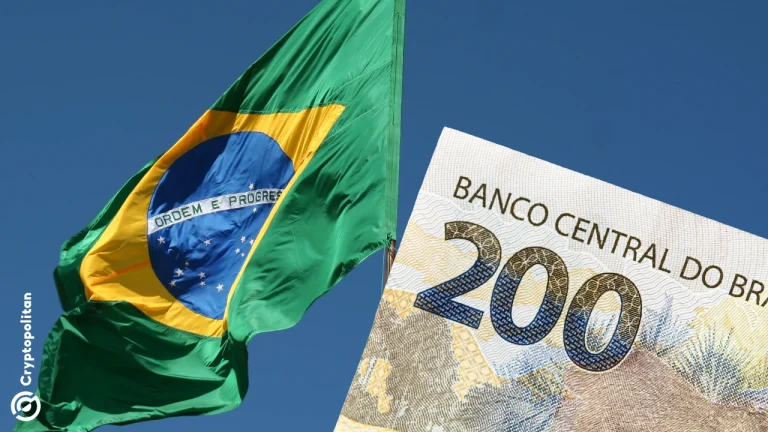Key Takeaways
- Brazil’s central bank has maintained its benchmark Selic rate at 15% for the third consecutive meeting to combat inflation.
- Inflation, while showing signs of easing, is projected to remain above the 3% target through 2028, influenced by low unemployment and fiscal concerns.
- Consumer prices rose 0.48% in September, with a year-on-year increase of 5.17%, despite falling food prices.
- Government initiatives, such as income tax exemptions for middle-class Brazilians, aim to stimulate consumer spending.
- The central bank is navigating a delicate balance between controlling inflation and supporting economic activity amidst fiscal uncertainties and upcoming elections.
Brazil Holds Interest Rate Steady Amid Inflation Fight
Brazil’s central bank has opted to keep its key interest rate unchanged at a near two-decade high, underscoring its ongoing commitment to curbing persistent inflation. The decision, led by Gabriel Galipolo, saw the benchmark Selic rate held at 15% for the third consecutive meeting, aligning with economists’ projections.
This measure follows a series of aggressive hikes, totaling 4.5 percentage points, implemented between September of last year and June. The central bank’s strategy aims to bring price stability to Latin America’s largest economy.
Inflationary Pressures and Economic Outlook
While Brazil’s central bank is making progress in taming prices, inflation is anticipated to stay above the 3% target well into 2028. Factors such as record-low unemployment levels and increasing concerns regarding the nation’s public finances are complicating the economic outlook, necessitating continued vigilance from policymakers.
The current high interest rate environment is effectively dampening economic activity while providing support to the Brazilian real. Recent weeks have seen a cooling in consumer prices, partly attributed to the decreasing cost of food items.
Despite these efforts, President Luiz Inacio Lula da Silva’s administration is pursuing increased social spending in anticipation of the upcoming general election. This expansionary fiscal policy has raised investor concerns about the trajectory and sustainability of the government’s debt, even with assurances of a primary fiscal surplus.
September Inflation Data and Policy Considerations
Data from the Brazilian Institute of Geography and Statistics (IBGE) revealed that Brazil’s inflation experienced a slight uptick in September, despite a continued decline in food prices. Consumer prices in Brazil increased by 0.48% during September, a notable rise from the 0.11% decrease observed in August. This figure fell slightly short of the 0.52% expansion predicted by economic analysts in a survey.
The food and beverage category, a significant component of the inflation basket, saw a decrease of 0.26% in September, marking the fourth consecutive month of price reductions in this sector. IBGE research manager Fernando Goncalves attributed this trend to a greater supply of products available to consumers.
Annually, consumer prices rose by 5.17% in September, up from 5.13% in August. Brazil’s central bank maintains a target inflation rate of 3%, with a permissible margin of 1.5 percentage points in either direction.
💡 The overall inflation landscape is considered stable, with September’s modest increase largely attributed to base effects. Leading indicators suggest a continued disinflationary trend in the coming months, according to Pantheon Macroeconomics’ chief Latin America economist Andres Abadia.
Government Fiscal Measures and Economic Impact
In a related development, President Luiz Inácio Lula da Silva’s government achieved a significant legislative success with the Senate’s approval of a bill to exempt a substantial portion of middle-class Brazilians from income tax. This legislation raises the income tax threshold to 5,000 reais per month, up from the previous 3,036 reais. Economists anticipate that this measure will provide households with greater disposable income, potentially stimulating consumer spending and bolstering the economy.
Final Thoughts
Brazil’s central bank is maintaining a firm stance on its benchmark interest rate to combat inflation, which, despite recent signs of easing, remains above the target. The monetary authority is carefully weighing the need for continued price control against economic growth and fiscal stability, particularly in the lead-up to an election year.

